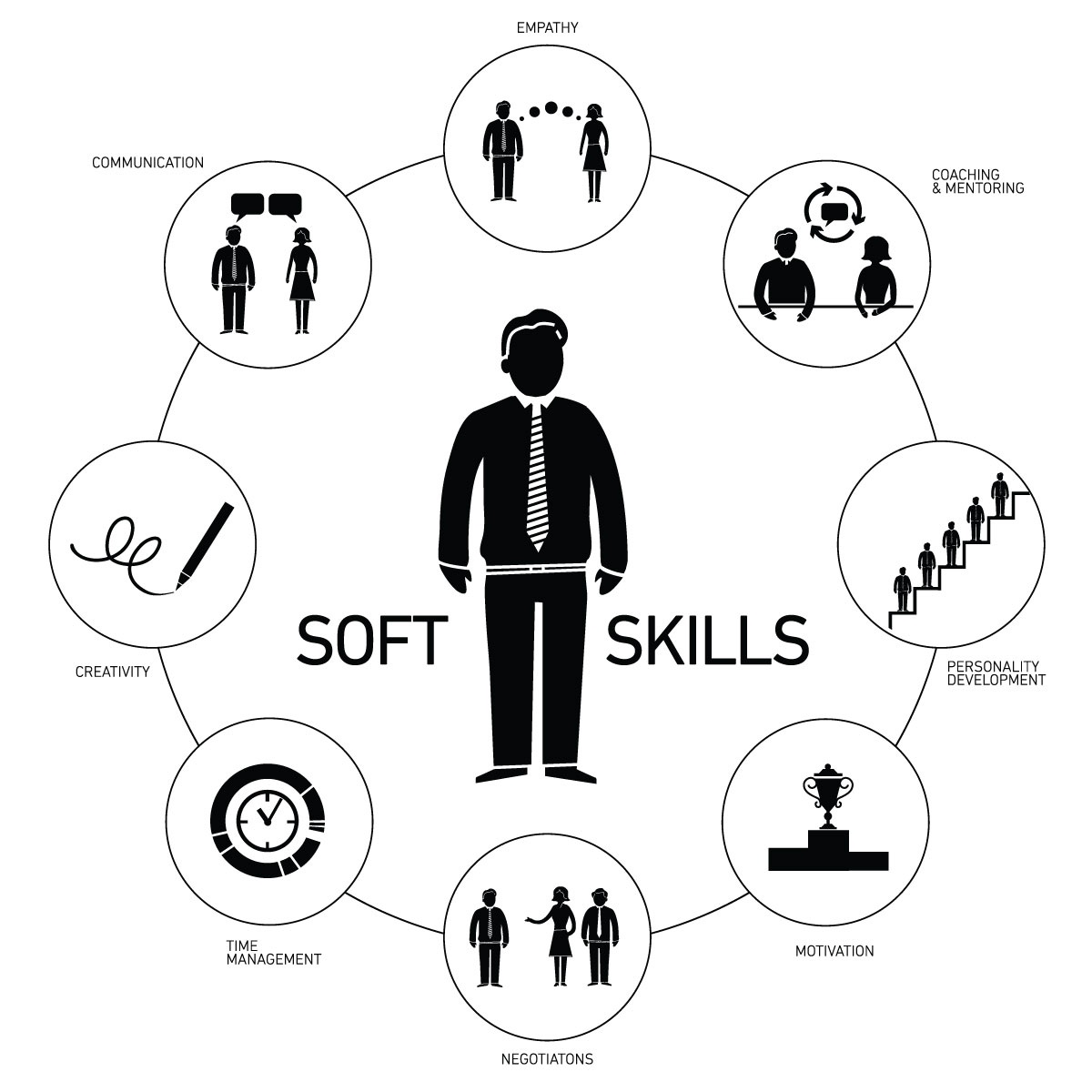5 Ways to Use Your LMS to Develop Soft Skills in the Workplace
Soft skills are a vital but often overlooked collection of attributes that allow individuals to function harmoniously when part of a group. They are basic but necessary to form a coherent organization that is effective. Your LMS can help staff improve their soft skills to become better workers when dealing with obstacles, people, and changing conditions both internally and externally.
What Are Soft Skills?
When you apply for a job, you can review the job requirements and understand what you need to know. If you’re a programmer, you probably need to know certain programming languages. If you are a teacher, you probably need to hold certain certifications. If you are a manager, then you may need certain business knowledge. These are called hard skills, and they are directly related to the job role. They tend to be emphasized in hiring ads because they are easier to acquire and prove. You can take a class, read a textbook, or be an apprentice and learn hard skills.
Soft skills are not as specialized, but they are very important. Sometimes called professional or transferable skills, these attributes are more general in nature. They focus on a person’s attitude and intuition. Examples of soft skills include:
- Decision making
- Communication
- Leadership
- Team work
- Problem solving
- Creativity
- Adaptability
- Critical observation
- Critical thinking
They are often considered emotional intelligence. The term refers to a person’s awareness and control of emotion and how they express it. It affects how they handle interpersonal relationships.
The Benefits of Soft Skill Training
Businesses want their personnel to have a deep understanding of their job roles, and will provide training that focuses on that goal. Soft skills are often overlooked, but can also be taught in a similar fashion. There are many benefits related to training soft skills at work including:
- Effective Communication – Miscommunication can eat into profits in the business world. Well-trained employees will know how to speak and write effectively so that their message is understood and can be quickly acted upon.
- Better Time Management – The better workers manage their time, the more they will accomplish. Good scheduling habits can have a wide-spread positive effect in the workplace.
- Better Organizational Skills – The more organized employees are, the more efficient they will be on a day-to-day basis. Improved efficiency can lead to higher customer satisfaction rates.
- Realistic Goal Setting – Goals are necessary to guide a business in the right direction. Realistic goal setting skills allow employees to successfully follow through on their plans for the future. This also increases the likeliness of meeting company-wide goals.
- Effective Presenters – There may be times when an employee needs to share information with a group. If they are an effective presenter, then they will be able to convey their message without confusion so that their audience can act on it.
- Ability to Change – An employee that is resistant to change can have a ripple effect throughout the company. Workers should learn to be adaptable so they can thrive in any professional environment, especially when uncertainty is present.
- Better Problem Solving – Many workers face problems every day. Having staff that knows how to deal with those problems quickly and effectively can lower risk and decrease any negative effect the problem may have.
- Less Job-Related Stress – Employees that work well together will experience lower overall stress levels. This can also help prevent burnout, depression, and fatigue.
5 Ways to Develop Soft Skills with Your LMS
If you need to teach someone how to complete a task, like running a report or preparing a shipment, it’s relatively easy. There’s a set sequence of steps that must be worked through before the task is finished. Soft skills are not as obvious or direct. They are less tangible. There are ways that you can employ your LMS to strengthen soft skills using features it already has. The following five methods can help you get started.
- Collaboration Tools Create Opportunities for Teamwork
Most LMS platforms include collaboration tools like file sharing, groups, and virtual meetings. These interactive features provide a venue for employees to discuss requirements, work schedules, and other project needs. Most systems also enable employees to collaborate from a distance, so groups that are spread out can still work as one unit. Relying on one another builds trust and helps each group member learn how to accomplish multiple-part goals with others.
- Inspire Creativity Through Whiteboards, Forums, & Feedback
Creativity is one of the characteristics that separates the unknowns from the knowns in the professional world. Many learning management systems include features like whiteboards that allow users to build off of one another’s ideas with the help of notes, sketches, and diagrams. By taking the conversation beyond verbal or written words, employees can discover new options and ideas by strengthening creativity through visualization and inspiration.
- Exercise Critical Thinking with Simulations & On-the-Job Training Situations
Newer LMS features include simulations and on-the-job style training. This lets the learner put themselves in a realistic situation that requires critical thinking without putting customers, resources, or other employees at risk. Critical thinking allows workers to assess the pros and cons of possible outcomes to choose the best path to take to reach their goal. The stronger their critical thinking skills get, the better they will be at making good decisions for themselves and the organization.
- Encourage Good Communication with Social Learning
Communication is necessary in every industry. No matter how large or small your workforce is, employees will need to communicate with others at some point. LMS platforms can hone communication skills through social learning. This category of features usually includes news feeds, user-generated content, Q&As, chats, ratings, and reviews. It provides multiple ways for staff to interact and practice good communication in a contained environment.
- Assign & Measure Performance Goals Based on Soft Skills
Goal setting is only the first step for a successful business. You must also have a way to monitor progress to ensure that your efforts stay on track. Your LMS may have performance-related features that allow managers and supervisors to assign milestones and observe progress. Use this to set goals that encourage workers to grow their soft skills set.
For example, measuring customer satisfaction will help you gauge a worker’s communication skills. If they increase productivity, then they may have learned how to manage time better. You can also measure soft skill success across the company by looking at changes in sales trends, turnover rates, customer feedback, and safety statistics.
Learn More About Soft Skill Training & Your LMS
There’s no denying the power of an employee with good soft skills. If you want to build a successful organization, you should begin by learning more about these attributes and how they apply to your business. Review your LMS to find more ways to use eLearning to empower your workforce.








